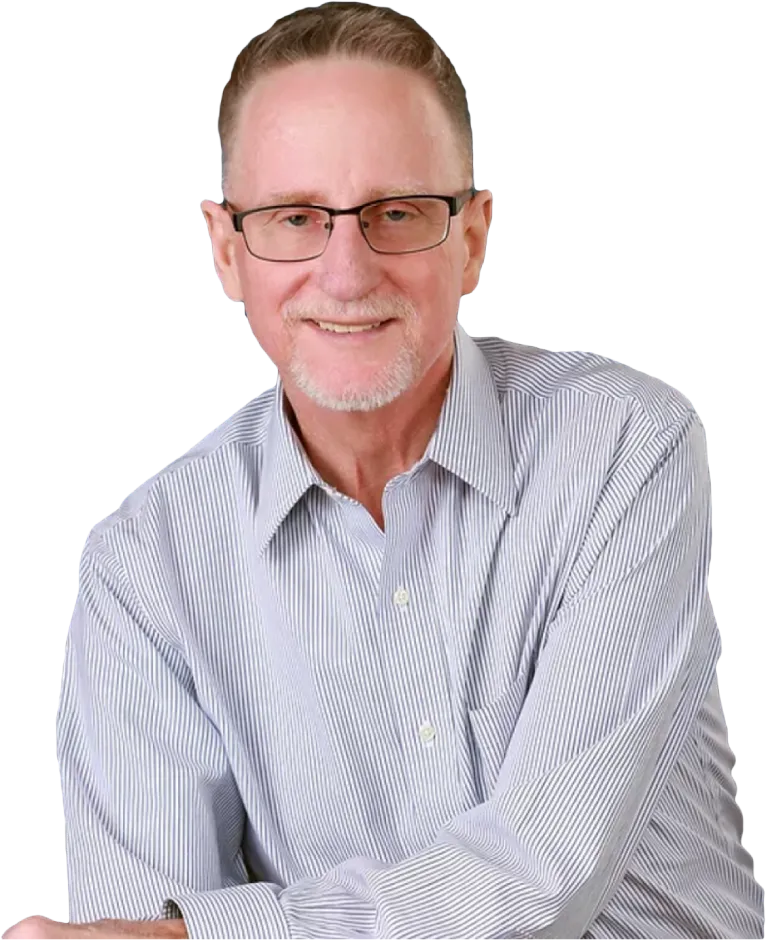SCOTT MASSEY
Inspirational Speaker
& Resilience Coach

FROM HIGH SCHOOL DROPOUT TO PHD
I started drinking when I was 12 and became a high school dropout by the time I was 15. In my twenties, I was waking up without knowing where I was or how I got there. My life didn't have meaning or purpose.
After thirty years of alcohol abuse, I decided to check into rehab and made an action plan for my life. It's been a difficult journey, but I'm almost 20 years sober now.
was a high school dropout, addicted to alcohol, and lacked hope. Now, I have a PhD, teach at the university level, and successfully run two businesses. I know adversity. I know struggle. And I know success.
Now I want to help you unleash the power to transform your life.
YOU HAVE THE POWER TO CHANGE THE TRAJECTORY OF YOUR LIFE
I believe each person has the ability to transform their life. Regardless of your past, you can make your future successful. Whether you’re struggling with addiction, broken relationships, or financial issues, you can enhance your life.
TESTIMONIALS
Dr. Scott Massey’s ability to talk with others about his past and how he got through it is amazing. Two members of my family struggle with alcoholism, and it’s difficult to watch, so his story resonated with me. He has and will continue to help others with their personal struggles.
—Katlyn B.
I have a lot of respect for Scott as a person. I’m twenty-two and living the young, “fun” stage of life, but his talk helped me realize the decisions I need to make now. I enjoyed his presentation; he spoke fearlessly.
—Danielle C.
Scott is incredibly inspiring! He took control of his life even when he didn’t have others supporting him. I enjoyed hearing his story. He did a great job making it relatable to everyone and challenged us to reflect on our own lives.
—Ellie W.
I felt the most impact when Dr. Massey talked about what makes him a better person. I personally deal with anxiety and think about things I can’t do instead of focusing on what I can do. After hearing Dr. Massey share his motivations, though, I’m inspired to set my mind on the things I can do!
—Danielle C.
Listening to Scott gave me hope for my future. He posed challenging questions that truly got me thinking. I think others can benefit from reflecting on his story and his questions, too.
—Brittany S.
Scott has a powerful story and I hope he continues to share it. He realized he wasn’t the person he wanted to be, so he made decisions that turned his life around. He created a plan of action and changed his life—we can do the same.
—Isaac D.
BOOK AN APPOINTMENT
Scott Massey is available for coaching or speaking at your next event!
Take the first step and book an appointment with Scott today!
RECENT POSTS

Building a Culture of Assessment: A Strategic Guide for Inaugural PA Program Directors
One of the most pivotal responsibilities of a founding PA program director is to design a robust and sustainable assessment system. While ARC-PA’s provisional application does not initially require data collection, a truly well-developed program must still demonstrate that all assessment structures are in place from the beginning.
Assessment should not be viewed solely as a means of meeting ARC-PA standards. Instead, it should be embraced as a powerful tool for action research and continuous quality improvement. Properly implemented, assessment processes empower faculty to make informed decisions, support curriculum refinement, and uncover opportunities for scholarly work hidden within your spreadsheets.
To ensure a smooth rollout, programs must adopt a data-informed culture even before the first cohort arrives. A strategic timeline for data collection, outlined in Appendix 13K, is essential. It’s also critical to assign clear responsibilities to committees or staff who will analyze data and implement improvements.
Projecting Faculty and Staff Sufficiency
Appendix 13I requires programs to plan forward—often three years ahead—to ensure that adequate faculty and staff are available to support overlapping student cohorts. This involves not only tracking full-time equivalents (FTEs) for key roles but also analyzing evolving student-to-faculty and student-to-staff ratios over time. Using benchmarking data from organizations like PAEA can help calibrate realistic projections.
A longitudinal staffing schematic, like the example included in your planning documents, illustrates future sufficiency and ensures a program can sustain growth without compromising quality.
Developing a Comprehensive SSR
The Self-Study Report (SSR), tied to Appendix 13 of ARC-PA’s standards, is a high-priority undertaking. It requires programs to show that they:
Regularly collect both qualitative and quantitative data
Analyze that data for patterns, trends, and actionable insights
Apply findings to develop meaningful conclusions
Create and implement action plans based on those conclusions
Many inaugural programs underestimate the labor and planning needed to execute this level of assessment. That’s why it’s critical to create a committee structure that facilitates timely data review and action planning.
Educating students about their role in shaping the curriculum can also foster a shared sense of ownership. When assessment is normalized as a collaborative and transparent process, faculty experience less pressure, and student satisfaction tends to rise.
Final Thoughts
Assessment isn’t just about ARC-PA compliance—it’s a cornerstone of your program’s identity. Establishing an efficient and integrated assessment system from day one sets the tone for excellence, innovation, and long-term success in PA education.
SCOTT MASSEY

Inspirational Speaker
& Resilience Coach

FROM HIGH SCHOOL DROPOUT TO PHD
I started drinking when I was 12 and became a high school dropout by the time I was 15. In my twenties, I was waking up without knowing where I was or how I got there. My life didn't have meaning or purpose.
After thirty years of alcohol abuse, I decided to check into rehab and made an action plan for my life. It's been a difficult journey, but I'm almost 20 years sober now.
was a high school dropout, addicted to alcohol, and lacked hope. Now, I have a PhD, teach at the university level, and successfully run two businesses. I know adversity. I know struggle. And I know success.
Now I want to help you unleash the power to transform your life.

YOU HAVE THE POWER TO CHANGE THE TRAJECTORY OF YOUR LIFE
I believe each person has the ability to transform their life. Regardless of your past, you can make your future successful. Whether you’re struggling with addiction, broken relationships, or financial issues, you can enhance your life.
TESTIMONIALS
Dr. Scott Massey’s ability to talk with others about his past and how he got through it is amazing. Two members of my family struggle with alcoholism, and it’s difficult to watch, so his story resonated with me. He has and will continue to help others with their personal struggles.
—Katlyn B.
I have a lot of respect for Scott as a person. I’m twenty-two and living the young, “fun” stage of life, but his talk helped me realize the decisions I need to make now. I enjoyed his presentation; he spoke fearlessly.
—Danielle C.
Scott is incredibly inspiring! He took control of his life even when he didn’t have others supporting him. I enjoyed hearing his story. He did a great job making it relatable to everyone and challenged us to reflect on our own lives.
—Ellie W.
I felt the most impact when Dr. Massey talked about what makes him a better person. I personally deal with anxiety and think about things I can’t do instead of focusing on what I can do. After hearing Dr. Massey share his motivations, though, I’m inspired to set my mind on the things I can do!
—Danielle C.
Listening to Scott gave me hope for my future. He posed challenging questions that truly got me thinking. I think others can benefit from reflecting on his story and his questions, too.
—Brittany S.
Scott has a powerful story and I hope he continues to share it. He realized he wasn’t the person he wanted to be, so he made decisions that turned his life around. He created a plan of action and changed his life—we can do the same.
—Isaac D.
BOOK AN APPOINTMENT
Scott Massey is available for coaching or speaking at your next event!
Take the first step and book an appointment with Scott today!
RECENT POSTS

Building a Culture of Assessment: A Strategic Guide for Inaugural PA Program Directors
One of the most pivotal responsibilities of a founding PA program director is to design a robust and sustainable assessment system. While ARC-PA’s provisional application does not initially require data collection, a truly well-developed program must still demonstrate that all assessment structures are in place from the beginning.
Assessment should not be viewed solely as a means of meeting ARC-PA standards. Instead, it should be embraced as a powerful tool for action research and continuous quality improvement. Properly implemented, assessment processes empower faculty to make informed decisions, support curriculum refinement, and uncover opportunities for scholarly work hidden within your spreadsheets.
To ensure a smooth rollout, programs must adopt a data-informed culture even before the first cohort arrives. A strategic timeline for data collection, outlined in Appendix 13K, is essential. It’s also critical to assign clear responsibilities to committees or staff who will analyze data and implement improvements.
Projecting Faculty and Staff Sufficiency
Appendix 13I requires programs to plan forward—often three years ahead—to ensure that adequate faculty and staff are available to support overlapping student cohorts. This involves not only tracking full-time equivalents (FTEs) for key roles but also analyzing evolving student-to-faculty and student-to-staff ratios over time. Using benchmarking data from organizations like PAEA can help calibrate realistic projections.
A longitudinal staffing schematic, like the example included in your planning documents, illustrates future sufficiency and ensures a program can sustain growth without compromising quality.
Developing a Comprehensive SSR
The Self-Study Report (SSR), tied to Appendix 13 of ARC-PA’s standards, is a high-priority undertaking. It requires programs to show that they:
Regularly collect both qualitative and quantitative data
Analyze that data for patterns, trends, and actionable insights
Apply findings to develop meaningful conclusions
Create and implement action plans based on those conclusions
Many inaugural programs underestimate the labor and planning needed to execute this level of assessment. That’s why it’s critical to create a committee structure that facilitates timely data review and action planning.
Educating students about their role in shaping the curriculum can also foster a shared sense of ownership. When assessment is normalized as a collaborative and transparent process, faculty experience less pressure, and student satisfaction tends to rise.
Final Thoughts
Assessment isn’t just about ARC-PA compliance—it’s a cornerstone of your program’s identity. Establishing an efficient and integrated assessment system from day one sets the tone for excellence, innovation, and long-term success in PA education.
